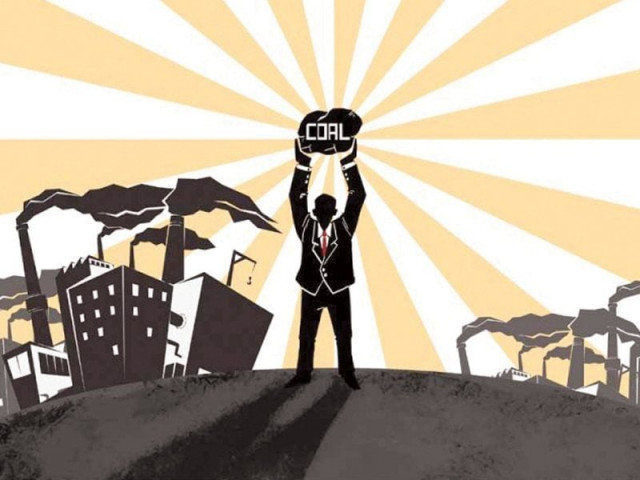Changing tracks: As power crisis worsens, businesses innovate
Many domestic industries opt for waste and coal-fired power plants.

Many domestic industries opt for waste and coal-fired power plants. CREATIVE COMMONS
As Pakistan grapples with a crippling energy crisis, many manufacturers have opted to switch from oil and gas to other fuels, creating a whole new market for coal, agricultural by-products and even garbage, industry officials say.
A few years ago, the idea that factories would use shredded tyres and solid municipal waste to run power plants would have been incomprehensible to most. However, since then, severe gas shortages, the high price of fuel oil and an economic slowdown have increased the demand for alternate sources of energy. From textile factories to chemical makers, everyone is moving towards such alternates, sources say.
Rice husk, corn cobs and wheat straw are all used to fire industrial boilers, while cement plants are already using municipal waste and used car tyres to power their plants.
“When the government started to curtail gas supplies to factories in the face of shortages in 2007, businessmen started to look for alternates,” explains Yasir Ilyas of FBL Industrial Services, a company which supplies industrial boilers.
“Our company has worked with 150 companies, helping them convert gas-dependent plants. Now they use rice husk, wood chips and coal,” he said.
“Farmers used to throw rice husk away, but its price has now started to surge because of high demand,” Hammad Bashir, an energy consultant, told The Express Tribune.
Supply chain issues for bio-fuels continue to constrain its use on a wider scale, according to Ilyas. “The price of bio-fuels could be really alluring in places like Pindi Bhattian, Gujranwala, Okara and Sahiwal [all major agricultural districts]. But the further you are from farmland, the higher the price,” he explained.
Industrial consumers pay almost the same for gas as they can for coal sourced from local mines, which remains the best choice as alternate fuel by far. On the other hand, “Imported coal is expensive by at least 30%,” Ilyas said.
It costs Rs1 million to convert a small gas boiler of up to five ton capacity to coal, he said. The consumption of local coal has jumped twofold in past three years, according to industry officials, with the average price of local coal touching around Rs13.5 per kilogramme.
“It is generally believed that local coal, which comes from Balochistan, is unusable. That is wrong. It has high sulphur content, but the boilers and equipment imported from China are specifically designed to use that type of coal,” he added.
Athar Shah, from Gold Mines, informed The Express Tribune that 6,000 tons of coal is being shipped from a mine in the Duki area of Balochistan to parts of Punjab. “We have seen a tremendous shift in consumption patterns. Most of the coal was used by brick kilns, but now it is also being consumed by other industries,” he revealed.
The race to cut costs has pushed many companies towards coal-fired plants. Almost all cement makers in the country now rely on coal; however, most of the coal they use is imported.
Around 70% of the expenses of Lucky Cement, the largest cement producer in the country, are incurred as energy costs. “We are looking at bringing that down to 60% by using a mix of fuels,” Muhammad Ali Tabba, the company CEO, informed The Express Tribune.
The company buys a million tons of imported coal every year to run its plants, besides deriving energy from waste matter such as tyres and solid refuse. “Competition in international markets is getting tough. We need to continuously find ways to remain competitive,” Tabba said.
Lucky Cement is also a majority shareholder in ICI, the polyester stable fibre and chemical maker. It is investing around Rs5 billion in the company to switch its polyester and soda ash plants to coal.
Asked if the company was going overboard with investments in coal-fired plants amid all the talk about importing gas from abroad, Tabba shrugged and said: “We can always move back to gas. But I don’t see an improvement in gas supplies anytime soon.”
Published in The Express Tribune, June 7th, 2013.
Like Business on Facebook to stay informed and join in the conversation.



















COMMENTS
Comments are moderated and generally will be posted if they are on-topic and not abusive.
For more information, please see our Comments FAQ